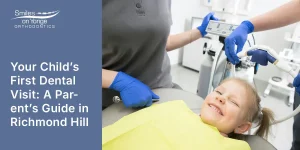
ORTHODONTICS
Surgical Orthodontics

Transformative Care: Surgical Orthodontics
Surgical orthodontics, also known as orthognathic surgery, is a type of orthodontic treatment used to correct severe cases that include bad bites, jaw bone abnormalities, and malocclusion.
Oral and maxillofacial surgery is one of the nine recognized dental specialties. It focuses on treating complex craniofacial cases that involve the mouth, jaw, face, and skull.
If you need services from a surgical orthodontist in Richmond, Dr. Rashed will work with an oral and maxillofacial surgeon to ensure you receive the best possible care.
When might surgical orthodontics be needed?
Surgical orthodontics may be used to treat adults with improper bites or other aesthetic concerns. Typically, jaw growth stops by age 16 in females and 18 in males. In order to receive orthognathic surgery, the jaw must be done growing.
The need for surgical orthodontics occurs when the jaws do not line up correctly, and a proper bite cannot be achieved with orthodontic treatment alone. Orthodontic braces will be used to move the teeth into their proper position, and orthognathic surgery will help align the jaw properly.
How do I know if I need orthognathic surgery?
We can tell you if orthognathic surgery is needed as part of your treatment. Depending on the severity of your case and the alignment of your jaw, you may or may not need surgery.
How does orthognathic surgery work?
An oral and maxillofacial surgeon will perform your orthognathic surgery in a hospital. The surgery can last several hours, depending on each individual case. Once the surgery is complete, you will have about a two-week rest period.
Since orthognathic surgery is a major treatment, we recommend you schedule some time away from work and school during the healing process. After your jaw has healed, Dr. Rashed will once again “fine-tune” your bite.
After surgery, you will have to wear braces. Most braces are removed within six to 12 months following surgery. After your braces are removed, you will wear a retainer to help maintain your new smile.
What are the risks associated with orthognathic surgery?
As with any major medical surgery, there may be certain risks of having orthognathic surgery. However, the procedure is not new, and it has been performed for many years in practices and hospitals.
If you’re concerned about an upcoming treatment with orthognathic surgery, please contact our practice and let us know. We are happy to answer any questions you may have, and provide you with any additional information. Your comfort is important to us.
What are the rewards of having orthognathic surgery?
Surgical orthodontics FAQs
Surgical orthodontics, also known as orthognathic surgery, is recommended when there are severe jaw discrepancies that cannot be corrected with braces alone. It addresses issues such as misaligned jaws, facial asymmetry, and bite problems. If you need one, visit our child orthodontist clinic in Richmond.
A thorough examination by a kid orthodontist from our clinic in Richmond will determine if surgical orthodontics is necessary. Candidates typically have skeletal issues that impact facial aesthetics, speech, and functional jaw movement.
The duration varies based on the complexity of the case. Surgical orthodontics is often part of a comprehensive treatment plan that may involve braces before and after surgery. The entire process can take approximately 18 to 24 months.
Surgical orthodontics is typically recommended for adolescents and young adults, once facial growth is near completion. However, age restrictions can vary, and a detailed assessment by our orthodontic team will determine suitability.
Our orthodontic team will provide detailed pre-surgical instructions. Recovery times vary, but children generally return to normal activities gradually. A post-surgery care plan, including diet restrictions and follow-up appointments, will be provided.
Many orthodontic practices and kid dental services in Richmond offer financing plans to make surgical orthodontics more accessible. Insurance coverage varies, and it’s recommended to check with both the orthodontic office and insurance provider to understand the available options.
Surgical orthodontics aims to correct severe jaw discrepancies, improving facial aesthetics, bite function, and overall oral health. The benefits include enhanced facial symmetry, proper alignment, and long-term stability.
Absolutely. Parents can schedule a consultation with our child orthodontists to discuss their child’s specific case, explore treatment options, and address any questions or concerns regarding surgical orthodontics.
Clinic Hours
Tuesday
Wednesday
Thursday
Friday
Saturday
9:30am – 6:30pm
8:00am – 4:00pm
9:30am – 6:30pm
10:00am – 4:00pm
by appointment only
Other Orthodontics Services
SEE INSIDE OUR OFFICE
Where Pediatric Comfort Meets Orthodontic Precision
Take a peek inside our warm, modern Richmond Hill clinic, thoughtfully designed for kids, teens, and families.
From playful touches to high-tech care, every detail supports growing smiles.
Smiles on Yonge
Monday: 8:00am - 4:00pm
Tuesday: 9:30am - 6:30pm
Wednesday: 8:00am - 4:00pm
Thursday: 9:30am - 6:30pm
Friday: 10:00am - 4:00pm
Saturday: call for availability
Keep in Touch!
Contact Us
© All Rights Reserved smilesonyonge.ca
Privacy Policy | Terms of Use | Sitemap




